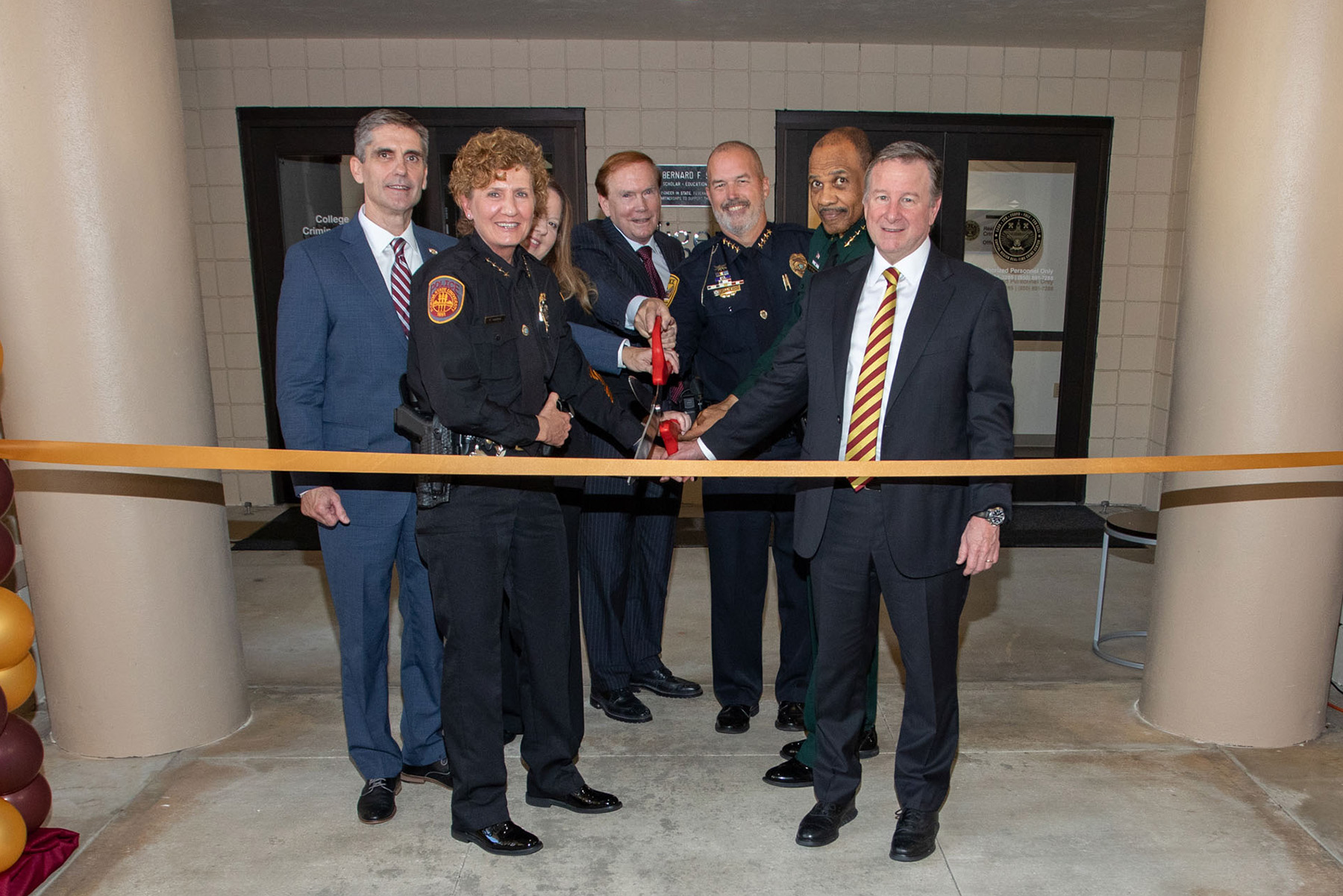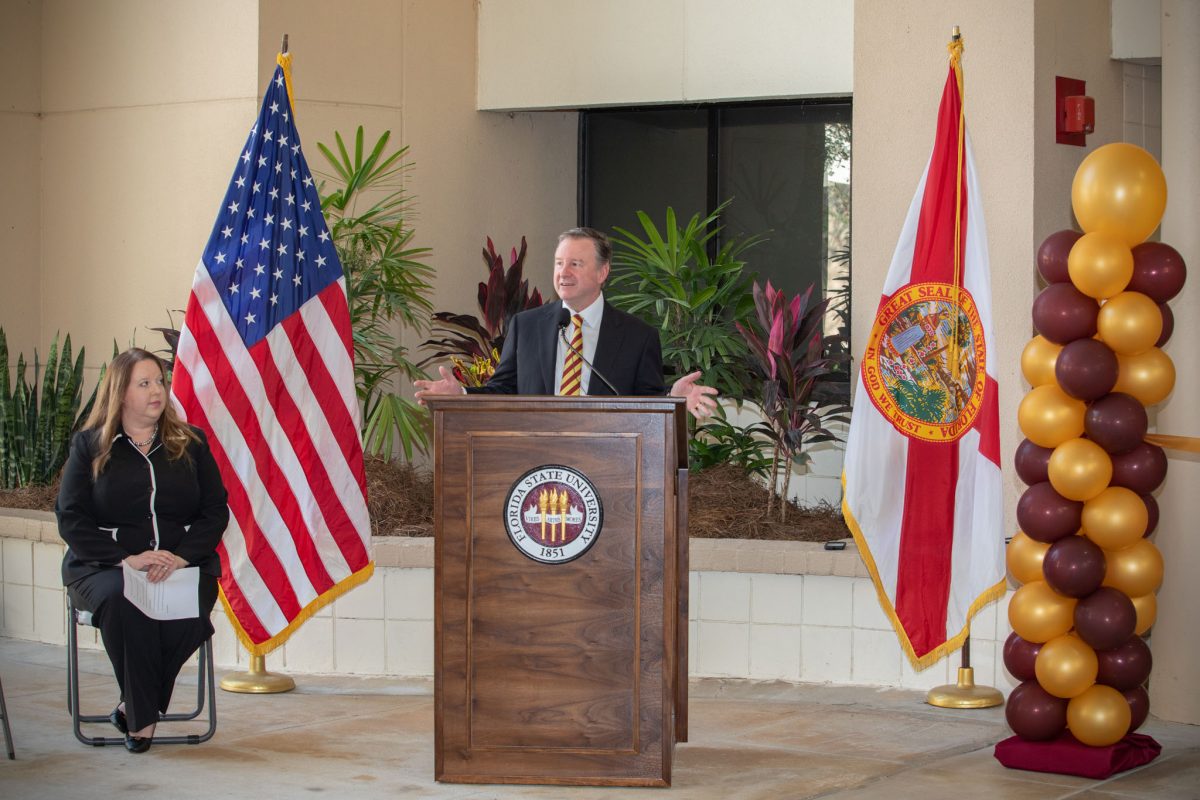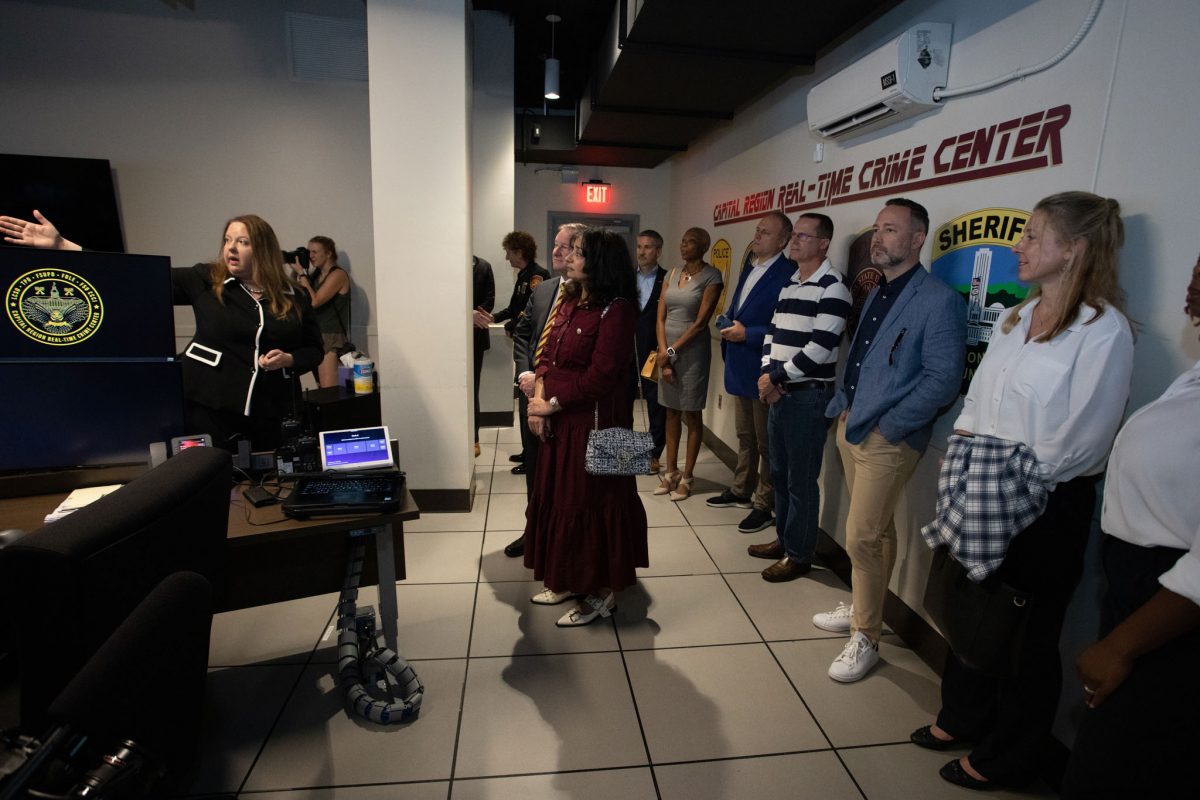
Leaders of the Tallahassee area’s law enforcement agencies joined city, county and Florida State University officials Friday to cut the ribbon on the new Capital Region Real Time Crime Center (CRRTCC), a collaboration that brings together resources of local law enforcement and the nation’s leading criminology researchers in an effort to make the community safer.
The center, located at FSU’s Sliger Building in Innovation Park, is a local interagency between the FSU Police Department, Leon County Sheriff’s Office, Tallahassee Police Department and Florida Department of Law Enforcement tasked with improving communication, intelligence sharing and coordination between state, county and city law enforcement agencies.
Researchers and students from the FSU College of Criminology and Criminal Justice provide innovative, timely and comprehensive analysis of crime data — a built-in component that other real-time crime centers don’t offer.
“This is a nerve center where we can give actionable information and intelligence and officer safety information to officers and deputies out in the field.”
— Leslie Rabon, a certified law enforcement analyst and director of the CRRTCC
“This is a nerve center where we can give actionable information and intelligence and officer safety information to officers and deputies out in the field,” said Leslie Rabon, a certified law enforcement analyst and director of the CRRTCC.
Rabon previously served as the executive director of the Criminal Intelligence and Analysis Unit at the Leon County Sheriff’s Office and has been involved with the CRRTCC since the project’s inception. Rabon also oversaw a similar center at the LCSO, after Sherriff Walt McNeil implemented the concept in August 2017.
“In this area, we have so many people who come in and out of our jurisdiction,” she said. “Having everyone in one center together where we can share this very important information is critical because we can keep our officers safer and solve crimes faster.”
The center, which began operating in February, is an investment in the community’s future. FSU provided the initial funds of $2.03 million, and LCSO, TPD and FSUPD are equally sharing the recurring cost of funding the center.
“This technology and this partnership are going to catapult law enforcement in Tallahassee and Leon County into the next generation,” said Chief Lawrence Revell of the Tallahassee Police Department.
McNeil said launching the center is one of the most important milestones for local law enforcement in the past 10 years.
“This is a regional asset we can utilize in our community and a way that we can more effectively fight crime and keep our deputies and communities safer,” McNeil said.
Since its opening, the CRRTCC has been instrumental in collaborating with partner agencies on several shootings and homicides, including identifying a murder suspect from Tennessee who was in the Tallahassee area, assisting with identifying a suspect in a shooting on the perimeter of FSU’s campus, providing critical information in an officer-involved shooting at Tom Brown Park, and assisting with identifying a suspect vehicle in a shooting at McDonald’s on Pensacola Street.
The center also has assisted on a number of swatting calls and in the recovery of more than 120 stolen vehicles.
While there are real-time crime centers in cities across the nation, Tallahassee’s will also benefit from an in-house learning lab that will allow researchers and students from FSU’s College of Criminology and Criminal Justice to provide immediate analysis of crime trends.
“Most real-time crime centers have never involved any type of ongoing research,” said Thomas G. Blomberg, dean of the FSU College of Criminology and Criminal Justice. “We’re doing the research part that can help law enforcement stay on track to achieve their major goals.”
The embedded research component of the CRRTTC is an opportunity to use evidence to form criminal justice policy, not just locally, but for law enforcement agencies around the country.
“I think this real-time crime center is going to change the ones that are out there now,” said FSU Assistant Vice President for Public Safety and Chief of Police Rhonda Harris. “I think people are going to see this as the new model, and that’s exciting to be a part of.”





